A van camper is a multifaceted vehicle that caters to the adventurous spirit of travelers and the operational needs of various businesses. It is a symbol of freedom and self-reliance, offering a compact living space equipped with essential amenities for life on the road. The van camper has evolved into a sophisticated mobile abode that appeals to those who value flexibility and comfort while exploring the great outdoors or engaging in commercial activities.
Types and Characteristics of Van Campers
The van camper market is diverse, with models ranging from the basic and utilitarian to the luxurious and fully-equipped. Some campers are designed with a focus on off-road capabilities, featuring 4x4 drivetrains and rugged construction for traversing challenging terrains. Others prioritize living space, offering expandable sections and high roofs for added comfort. There are also eco-friendly models that incorporate sustainable materials and solar power systems, appealing to environmentally conscious consumers. Each type of van camper presents unique characteristics, such as the Kinlife Street Mobile Food Truck, which is tailored for street food vendors with its integrated kitchen and serving windows, or the Ecocampor 4x4, which is built tough for off-road adventures and includes a hard shell for added protection.
Structure and Operation of Van Campers
The physical structure of a van camper is a marvel of engineering, designed to maximize space and functionality. The core structure typically includes a chassis that supports an insulated shell, windows for natural light, and a roof that may house solar panels or be convertible for additional headroom. Internally, the layout is meticulously planned to include a sleeping area, which can be a fixed bed or a convertible dinette set, a kitchenette with appliances like a stove and refrigerator, and storage cabinets crafted from lightweight materials. Some models also feature a wet bath with a toilet and shower. The operation of these components is designed for efficiency; for example, the bed area may transform into a seating space, and the kitchen appliances are often powered by propane or electricity drawn from the vehicle's battery or external sources.
Materials and Their Benefits in Van Campers
The choice of materials in a van camper is critical for balancing durability, weight, and insulation. Aluminum alloys are favored for the exterior due to their resistance to rust and lightweight properties, which contribute to fuel efficiency. Inside, materials like PVC and ABS are common for cabinetry because they are light, easy to clean, and durable. Insulation materials are selected for their thermal retention properties, ensuring the interior remains comfortable in both hot and cold climates. The use of galvanized sheets in certain areas provides additional protection against corrosion, extending the lifespan of the vehicle. These materials are chosen not only for their functional benefits but also for their aesthetic appeal, contributing to a modern and inviting interior design.
Business Usages and Applications Across Industries
Van campers have found their niche in various industries due to their adaptability. In the food industry, they are transformed into mobile kitchens, bringing gourmet street food to the masses. For the hospitality sector, they serve as luxury accommodations that can be relocated to cater to seasonal tourist flows or events. Advertising companies use wrapped van campers as mobile billboards, while farms utilize them for on-site accommodation and as mobile produce stands. Each application creates business value by expanding the reach of services and products, providing a flexible solution to meet the dynamic demands of the market, and enhancing brand visibility.
Functional Capabilities of Van Campers
The van camper is designed to serve as a multi-functional habitat on wheels. Its primary function is to provide a secure and comfortable living space for travelers. This includes sleeping arrangements that can often be converted into daytime seating, kitchen facilities for meal preparation, and storage solutions for personal belongings and equipment. For business use, the functionality extends to specialized equipment like refrigeration units for food storage, custom shelving for merchandise, and even fold-out service counters for customer interaction.
Distinctive Features and Unique Selling Points
What sets a van camper apart from other recreational vehicles are its distinctive features. Some campers offer innovative solutions like retractable roofs for increased living space or modular interiors that can be customized to suit the owner's needs. Unique selling points might include advanced technology systems for off-grid living, such as solar power setups and water purification systems, or cutting-edge design elements that maximize space and provide a high level of comfort and style. These features not only enhance the user experience but also contribute to the van camper's appeal in a competitive market.
Benefits and Positive Outcomes for Users
Owners of a van camper enjoy a plethora of benefits. The ability to travel and live in comfort without the constraints of hotel bookings and rigid itineraries is a significant advantage. For businesses, the van camper acts as a cost-effective solution to expand operations without the need for permanent structures. It also offers the flexibility to test new markets with minimal investment. For all users, the van camper provides the freedom to explore remote locations, fostering a deeper connection with nature and the environment.
How to Choose the Right Van Camper?
Selecting the right van camper is a process that should be approached with careful consideration of one's lifestyle or business needs. Factors such as the number of occupants, intended use, and travel destinations will influence the choice. It's important to evaluate the vehicle's size, fuel efficiency, and the layout of the living space. Prospective buyers should also consider the quality of the materials used and the type of after-sales support offered, ensuring that the van camper is a reliable and long-term investment.
How to Maintain Your Van Camper?
Effective maintenance of a van camper is key to its longevity and reliability. Regular servicing of the vehicle's engine and mechanical parts is essential, as is the upkeep of the living quarters. This includes checking seals and waterproofing elements to prevent leaks, cleaning and inspecting appliances, and ensuring that the electrical and plumbing systems are in good working order. Seasonal maintenance, such as preparing the camper for winter storage, is also important to prevent damage from extreme temperatures and disuse.
What After-sales Services Can You Expect?
After the purchase of a van camper, buyers can anticipate a comprehensive range of after-sales services. This typically includes access to technical support for troubleshooting any issues that arise, as well as online resources for general questions and guidance. Field maintenance and repair services are also available, providing hands-on assistance to address any physical problems with the camper. These services are integral to ensuring that the van camper remains a dependable companion for both leisure and business pursuits.
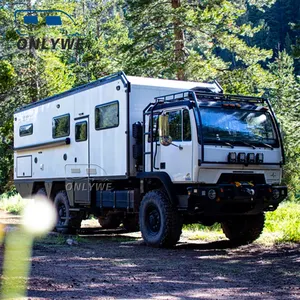
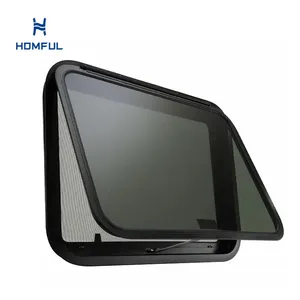

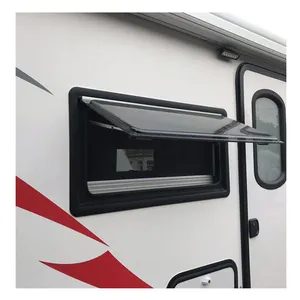
















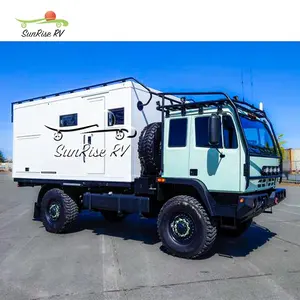

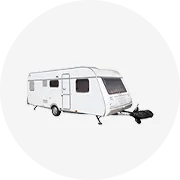


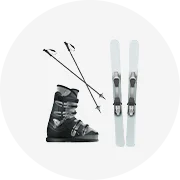



















 浙公网安备 33010002000092号
浙公网安备 33010002000092号 浙B2-20120091-4
浙B2-20120091-4